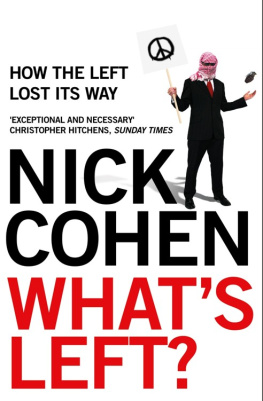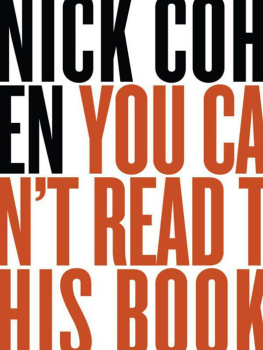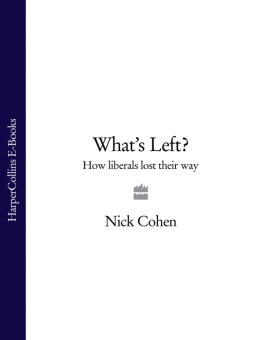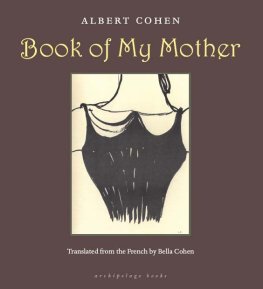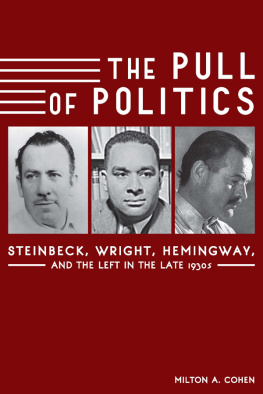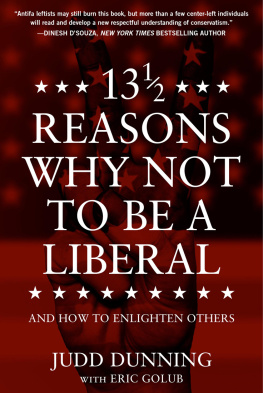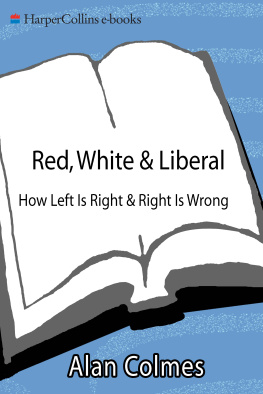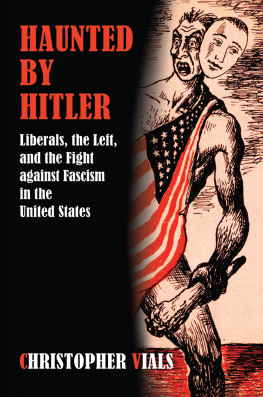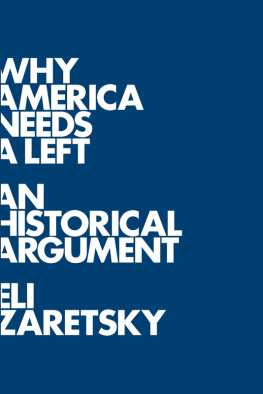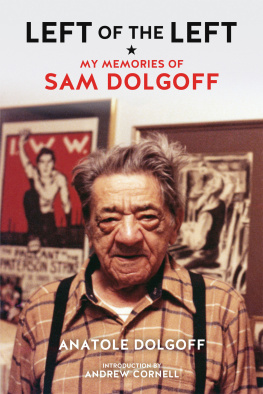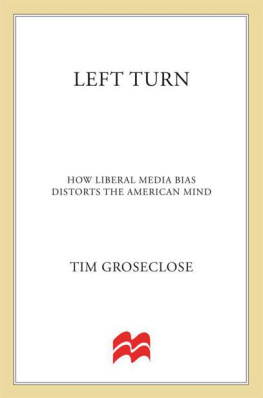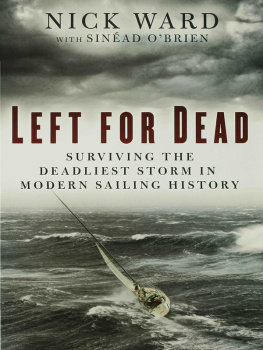I could not have written this book without the help of many people who gave me their time without complaint. I owe large debts of gratitude to: Kanan Makiya for allowing me to enter his life; Paul Anderson and Ken Weller, for advising me on the history of the Workers Revolutionary Party; Marko Attila Hoare, Nerma Jelacic, Oliver Kamm, Brendan Simms and Ed Vulliamy for their advice on the Bosnian and Kosovo conflicts; Jean Seaton for her help on the histories of the Fabians and the Bloomsbury Group; Thomas Frank and Richard D. North for their comments on the relationship between the middle- and working-class lefts; Paul Anderson, Oliver Kamm and Jean Seaton once again, along with Michael Foot, for their help on the story of the Left in the Thirties; Leni von Eckardt, Greg Palast and David Tate for their help on the Left after 9/11; Gary Kent and Abdullah Muhsin for their comments on the history of the Iraqi trade union movement; John Kampfner, the Editor of the New Statesman, for allowing me to reprint at the beginning of Chapter 12 work which originally appeared in the New Statesman of 10 October 2005; Tom Cordiner for his help on modern antisemitism; Robert Cooper for his advice on the history of the Freemason conspiracy myth; and Roger Alton, the Editor of the Observer, for allowing me time off from work. The excerpt from Newsreel came from The Complete Poems by C Day Lewis published by Sinclair-Stevenson (1992) Copyright 1992 in this edition The Estate of C Day Lewis. Reprinted by permission of The Random House Group Ltd. I am also grateful to Faber and Faber for its kind permission to quote from W. H. Audens Spain, O What is that Sound, Letters from Iceland, and September 1, 1939 collected in The English Auden.
Francis Wheen was this books midwife and an irrepressible source of encouragement. Natasha Fairweather of the A. P. Watt literary agency had the recklessness to back it when it was nothing more than a vague notion. Oliver Kamm and Norman Geras helped clear away many misconceptions. Ophelia Benson read the proofs and her wise advice saved me from many blunders, while Mitzi Angel of Fourth Estate was a princess among editors. I am indebted to them all, but my greatest debt of gratitude is to Anne-Marie for her heroic efforts to find me the time to write.
All errors of taste and judgement remain, as ever, the authors own.
Cruel Britannia: Reports on the Sinister and the Preposterous
Pretty Straight Guys
Waiting for the Etonians: Reports from the Sickbed of Liberal England
You Can't Read This Book: Censorship in an Age of Freedom
NICK COHEN is a columnist for the Observer, New Statesman and Evening Standard. In his Channel Four documentaries and general media appearances, he has proved himself to be the witty and excoriating voice of the left. He commands a loyal readership, as his groaning weekly postbag attests. He is the author of two books: Cruel Britannia: Reports on the Sinister and the Preposterous, a collection of his journalism and Pretty Straight Guys, a dissection of the Blair leadership.

Australia
HarperCollins Publishers (Australia) Pty. Ltd.
Level 13, 201 Elizabeth Street
Sydney, NSW 2000, Australia
www.harpercollins.com.au
Canada
HarperCollins Canada
2 Bloor Street East - 20th Floor
Toronto, ON, M4W 1A8, Canada
www.harpercollins.ca
New Zealand
HarperCollinsPublishers (New Zealand) Limited
P.O. Box 1
Auckland,
New Zealand
www.harpercollins.co.nz
United Kingdom
HarperCollins Publishers Ltd.
1 London Bridge Street
London, SE1 9GF, UK
www.harpercollins.co.uk
United States
HarperCollins Publishers Inc.
195 Broadway
New York, NY 10007
www.harpercollins.com
CHAPTER ONE
An Iraqi Solzhenitsyn
When an opponent declares, I will not come over to your side, I calmly say, Your child belongs to us already What are you? You will pass on. Your descendants, however, now stand in the new camp. In a short time they will know nothing else but this new community.
Adolf Hitler, 1933
YOURE NOT meant to say it, but great men and women still matter. Even in the modern age when elitism is a sin and the media labour to show the famous are no better than they ought to be, people still need heroes and heroines.
The politically committed need them more than most. They are partisans whose passions can make them appear unhinged. The babble of the therapists and the daytime TV hosts about each of us being special in our own unique way cannot disguise the banal reality that, like everyone else, the politically committed are not especially good or intelligent. Self-doubt creeps in. Why should others believe them when they say their plans for society wont end in the usual mess? Why should they believe themselves? Heroes make them feel comfortable. When they go to a meeting and hear a fine mind who knows more than they can ever know telling them that their cause is just, they are gladdened. When they turn on the television and see a brave woman abandoning her easy life to fight their battles, they know their battles are worth winning.
Until 2 August 1990, Kanan Makiya was a hero of the Left. We looked at him and felt good. It wasnt just that he was eloquent, courteous and intelligent, Kanan Makiya stood out because he did what the Left was meant do. He exposed in horrendous detail the mechanics of a totalitarian state without a thought for the consequences. Complacent foreign ministers practising the debased art of realism and the executives of companies growing fat on arms contracts didnt want to hear what he had to say. Public opinion knew little and cared less about his cause. He wasnt downhearted. He would be heard.
As befitted a Left that said it believed in universal principles, Kanan Makiya was born into a cosmopolitan family in 1949. His father, Mohamed Makiya, was a Shia Arab and one of the first Iraqis to qualify as an architect. Mohamed founded the University of Baghdads school of architecture and taught his students to create a new style for the Arab world by combining the motifs of his beloved Islamic tradition with the techniques of modernism. While he was studying at Liverpool University in 1941, he met Margaret Crawford, a history student and the daughter of a strict Derbyshire headmaster. To the horror of her conventional parents, they fell in love. When they said she must choose between him and them, she made matters worse by marrying Mohamed and moving to Iraq. Her family renounced her, and Kanan grew up without knowing his English relatives. Margaret was as much a part of the Left of the Forties as Kanan was of the Left of the 1968 generation. (If you were a nice Derbyshire girl from a good family, you had to be very left wing sixty years ago to defy your parents and run off with an Arab.) While they were students, she would take Mohamed away from his town planning classes to hear Bertrand Russell talk on philosophy and the socialist intellectual Harold Laski lecture on the new world which was coming.
The Makiyas were members of what people at that time called the progressive middle class or the intelligentsia. They brought fresh ideas with them when they settled in Baghdad. Mohameds fusion of old and new styles began to make him a leader of Arab architecture. Margaret organized the first modern art exhibition in Baghdad. They had the self-confidence of a young and bright couple who see a future full of possibilities in front of them.

